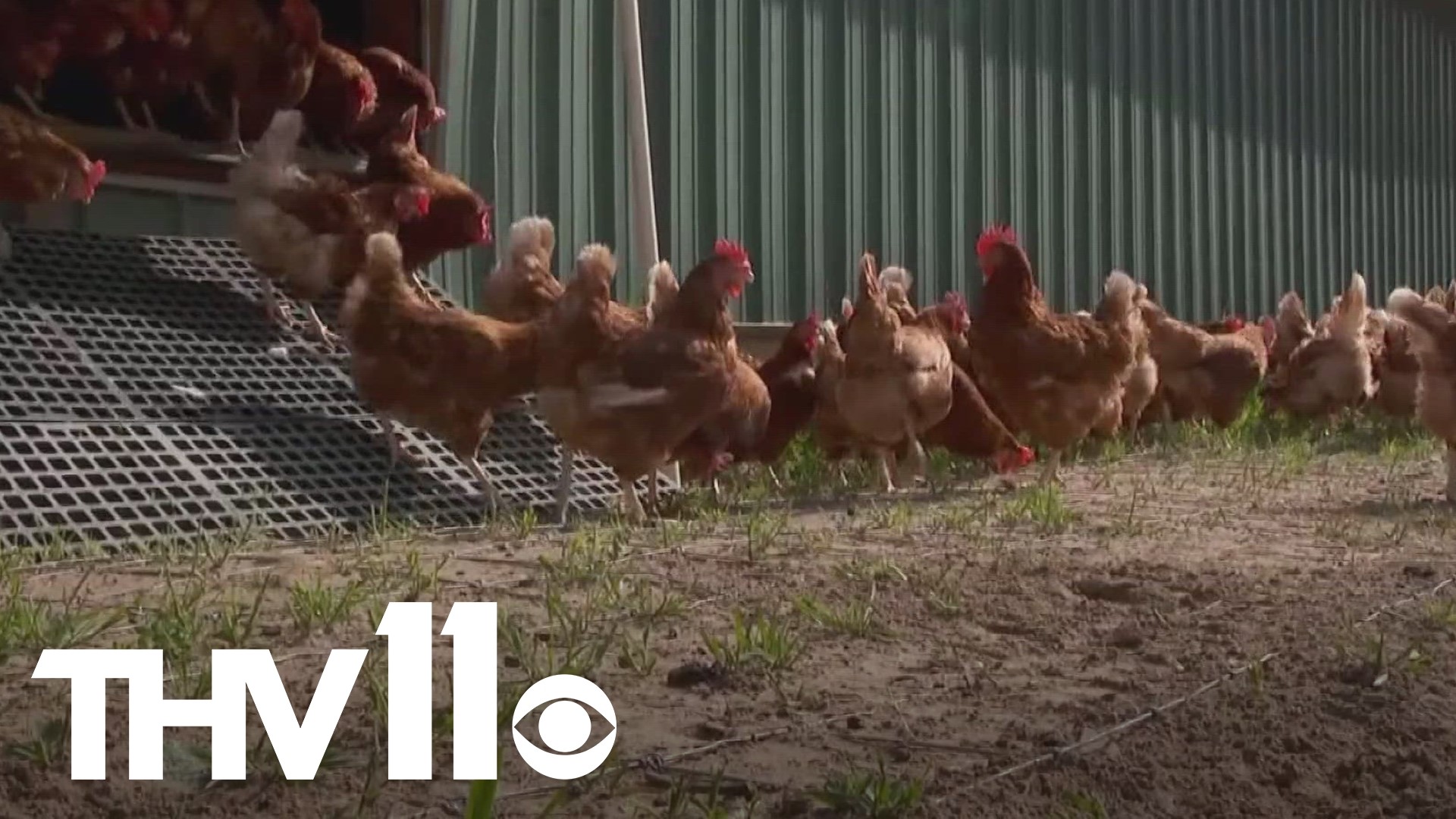MADISON COUNTY, Arkansas — A case of bird flu has been confirmed at an Arkansas Commercial Flock, the department of agriculture announced on Thursday.
According to officials, the case was confirmed after testing was done at a poultry farm in Madison County.
Following the test and further investigation, the state's Department of Agriculture worked with the USDA to confirm that the Madison County poultry farm had a positive test for bird flu.
"These birds were sick and so the attending veterinarian from the signs alone already had suspicions of that. So we got our test confirmation the next morning," said Dr. John Nilz the state veterinarian.
Experts with the Department of Agriculture have said that there's no health risk concern to the public and shared a reminder that bird flu has no impact on poultry meat or egg products.
He also said that both are still safe to eat.
“Arkansas poultry is safe to eat, and consumers can be confident in the safety of their food,” said Arkansas Secretary of Agriculture, Wes Ward.
The virus can spread quickly which is why experts have to take certain measures.
"The flock that was found in Madison County has been depopulated," said Poultry Health Veterinarian with the University of Arkansas Division of Agriculture, Dustan Clark.
The Department of Agriculture said that they're working with additional agencies, including the USDA, to handle the situation through actions like sampling and quarantining poultry flocks that are nearby.
“We have taken immediate action to contain this disease and will continue to work with poultry growers, the industry, and our laboratory partners to protect against its spread,” Ward said.
Experts have been on high alert and want farmers to keep a few things in mind.
"Being very clean, changing your boots, washing your feed, being careful where you go, being careful where you go, if you go in the feed store you could track it into the feed store somebody can pick it up there," said Dr. Nilz.
These tips may seem small but experts said they're vital in helping to prevent another case or outbreak from happening.
"It doesn't matter if your neighbor has a small flock or if you're a large commercial grower, we want to protect everybody's birds," said Clark.

